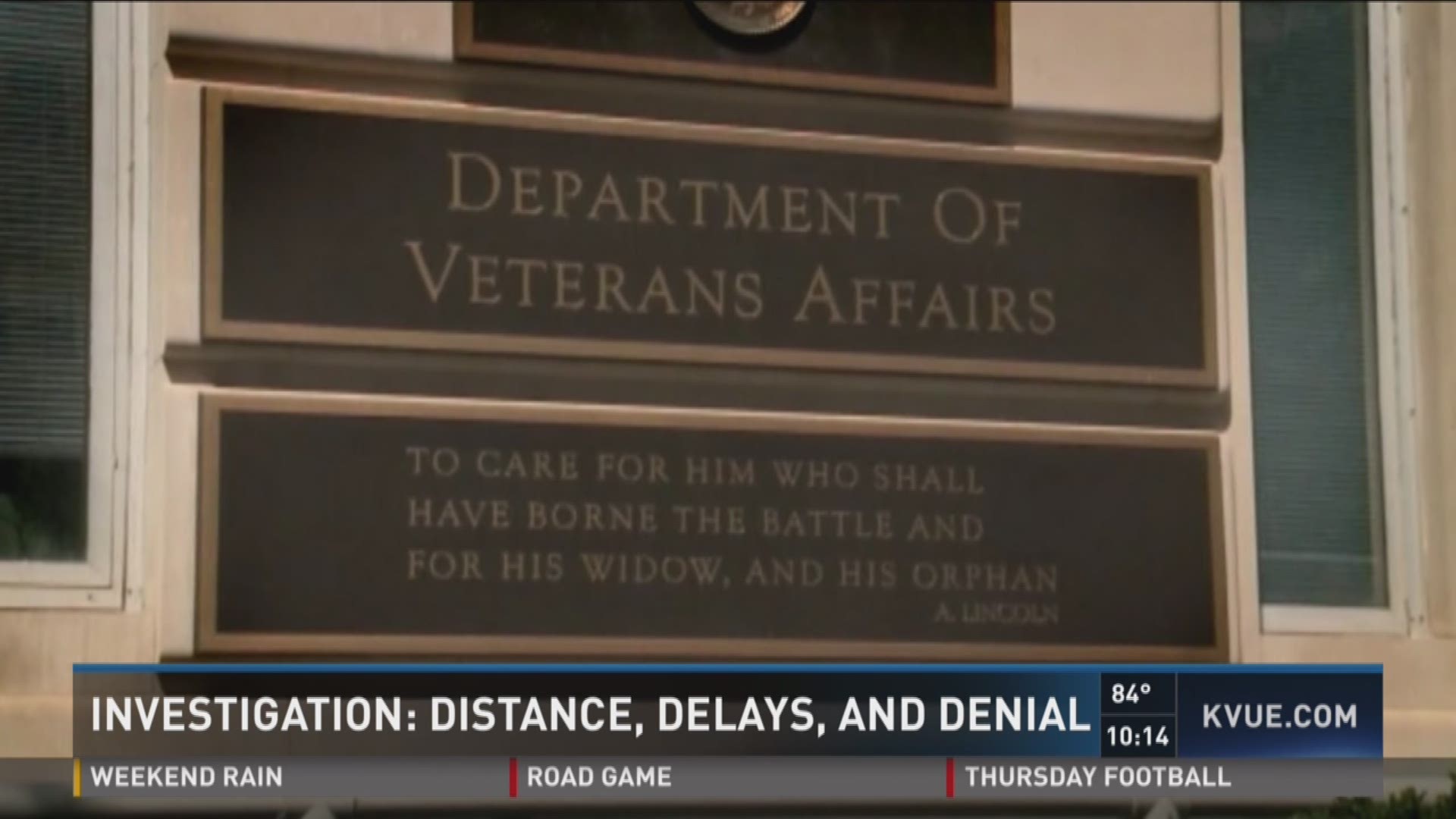The U.S. Department of Veterans Affairs says it stands by its decision to send veterans thousands of miles away for transplant care.
The KVUE Defenders teamed up with investigators around the country. They uncovered how the VA forces veterans to face distance, delays and denial for transplant care.
The VA has 13 transplant centers. The investigation revealed some of those VA hospitals don’t do the work.
Texas lung transplant recipients fly from Texas to Wisconsin to go to a partnering hospital.
“I had an awesome career. It was a great honor to have served our nation,” said Aaron Arch, a veteran in need of a lung transplant.
He flies from San Antonio to Madison, Wis. to get regular check-ups.
“Our patients fly to Madison, Wisconsin, to go across the street to the local university,” said VA Whistleblower Jamie McBride. “The continuity of care is not there.”
The VA delayed our request for an interview. Weeks passed. Excuses continued. The VA said their director was busy until KVUE’s nationwide story aired.
Dr. William Gunnar, the VA Director of Surgery, agreed to meet in Washington with KVUE’s sister station in Atlanta, WXIA.
“I can tell you that the risks imposed by distance did not translate to a risk of death,” said Gunnar.
We showed him our notes based from a University of Pennsylvania study. It said VA patients with a “greater distance from a VATC or any transplant center was associated with lower likelihood of being waitlisted… and greater likelihood of death.”
“Veterans that were more than 100 miles away from the closest transplant center are disadvantaged. They have less access to a lifesaving transplant which directly correlates to a higher chance of dying,” said Dr. David Goldberg, one of the researchers behind the study.
Gunnar said the VA did its own study, prompted by the U Penn results. That VA study, Gunnar said, claims no increased death risk for the distance. We asked for a copy of the study. They wouldn’t release it. The VA’s findings are secret for now.
Gunnar would only admit veterans who lived closer to a VA transplant center, like the one in Madison, do get faster care.
“It is true that if you live within 100 miles of a transplant center, a VA transplant center, you will have your information evaluated in a few days ahead of those who live beyond 100 miles,” said Gunnar.
The distance caused delays and, possibly, death for Pam Moore’s family. Moore claims the VA let her husband, John, die.
They traveled from Minnesota to Texas trying to get a liver transplant. The day of John’s death, the VA called saying a liver was ready.
“If it would have been done here, I think he would have had lived. I think he died unnecessarily. That’s truly what I believe,” said Moore.
“It’s easy to criticize, it’s hard to provide a solution,” said Gunnar.
A solution may already exist. McBride suggests all VA centers work like the transplant center in Madison: contract with local hospitals, save money and lives.
“And my response to that is, I’ve provided a substantive response to that which is VA has established a long history or providing quality and timely transplant services. Yes, people travel. They generally have to travel,” said Gunnar.
The VA changed its mind about Aaron Arch’s case. Immediately following our investigation, the VA agreed to pay for Arch’s transplant care in San Antonio.
His medical file isn’t transferred, officially, yet. He still flies back and forth to Madison.
Go here to see the full interview with Dr. William Gunnar with WXIA.

